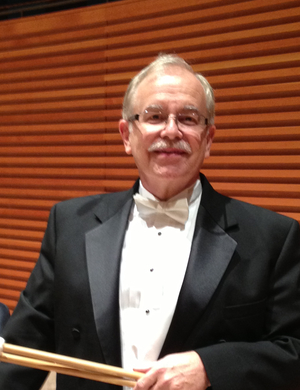
Photo credit: Brian Rood
It has been reported that roughly 75% of traditional print and broadcast media journalists check people’s and groups’ websites or blogs before deciding whether to do a story on them. That point was driven home to me the other day when I received a text from fellow percussionist Eric Hopkins that read, “Just got a call from NPR in D.C. about doing an interview tomorrow as a follow up to my triangle article.”
Eric is not only a wonderful musician; he’s also a very fine writer who contributes regularly to our musicians’ website and our quarterly E-newsletter. In May he approached me with the idea of a blog article with the intriguingly compelling title, “How to Become a Professional Triangle Player.” He’d recalled being quite annoyed by the following quote from the 2013 San Francisco Symphony strike: “If the Symphony needs a scab player for the triangle or tambourine to help break the strike, then I volunteer to perform for free. I’ve had no musical education at all but those instruments don’t look that difficult.”
Eric felt this uninformed remark simply screamed for an intelligent response, which had never been delivered. I agreed and loved his idea to compose one for our website. The end result was a wonderful article, which can be found on our site, musiciansutahsymphony.com, at musiciansutahsymphony.com/blog. (For purposes of shameless self-promotion, one can also subscribe to the musicians’ free e-newsletter on the same page.)
About a month after Eric’s blog post appeared on the site, I received an e-mail from our PR counterparts from the MET Orchestra musicians, who were so impressed with Eric’s article that they wished to include it as a guest post in the “Features” section of their own website. I thought that was a splendid idea and implored them to go for it!
That’s where things started getting really interesting! It seems that a rising young journalist from NPR named Tamara Keith had recently been perusing the MET Orchestra musicians’ website looking for ideas for a story when she stumbled upon Eric’s article. Having been a high school percussionist herself, Tamara was immediately drawn to the article and set about finding Eric. The end result was a delightful July 4 interview on NPR’s Weekend Edition. Our website page with Eric’s article includes a link to the Weekend Edition interview as well as a short written article by Ms. Keith. (By the way, the reader responses at the bottom of that article are a hoot!)
So, as ICSOM orchestra members, what are some useful takeaways from all this?
The Internet, with its websites, e-newsletters and social media platforms—including Facebook, Twitter, Instagram, and YouTube—together represent some of the most important, evolutionary changes to our industry in our lifetimes. And the opportunities they create for orchestra musicians to get our messages far beyond our own little echo chambers and out to the public, at minimal expense, are absolutely mind blowing! Those Internet channels that we control (which are called “owned media” whether or not we actually own them) allow us to create and distribute our own content—telling our stories the way we want them told—reaching fans, donors, board members, politicians, the media, other union locals, and simply the man or woman in the street. When we use owned media effectively, our reach expands, and we continue to build support over time—locally, regionally, nationally, and even internationally.
Finally, it is no longer sufficient to create our owned media only when our musicians are already staring down the barrel of a possible labor dispute. To be truly effective, we need to begin our community outreach efforts and committees, online and otherwise, much sooner—whether it’s three months, or even three years before the start of our contract negotiations. Just as importantly, all these efforts must be ongoing—continually building upon our fan and support base as long as our orchestras exist.
It never ends.





